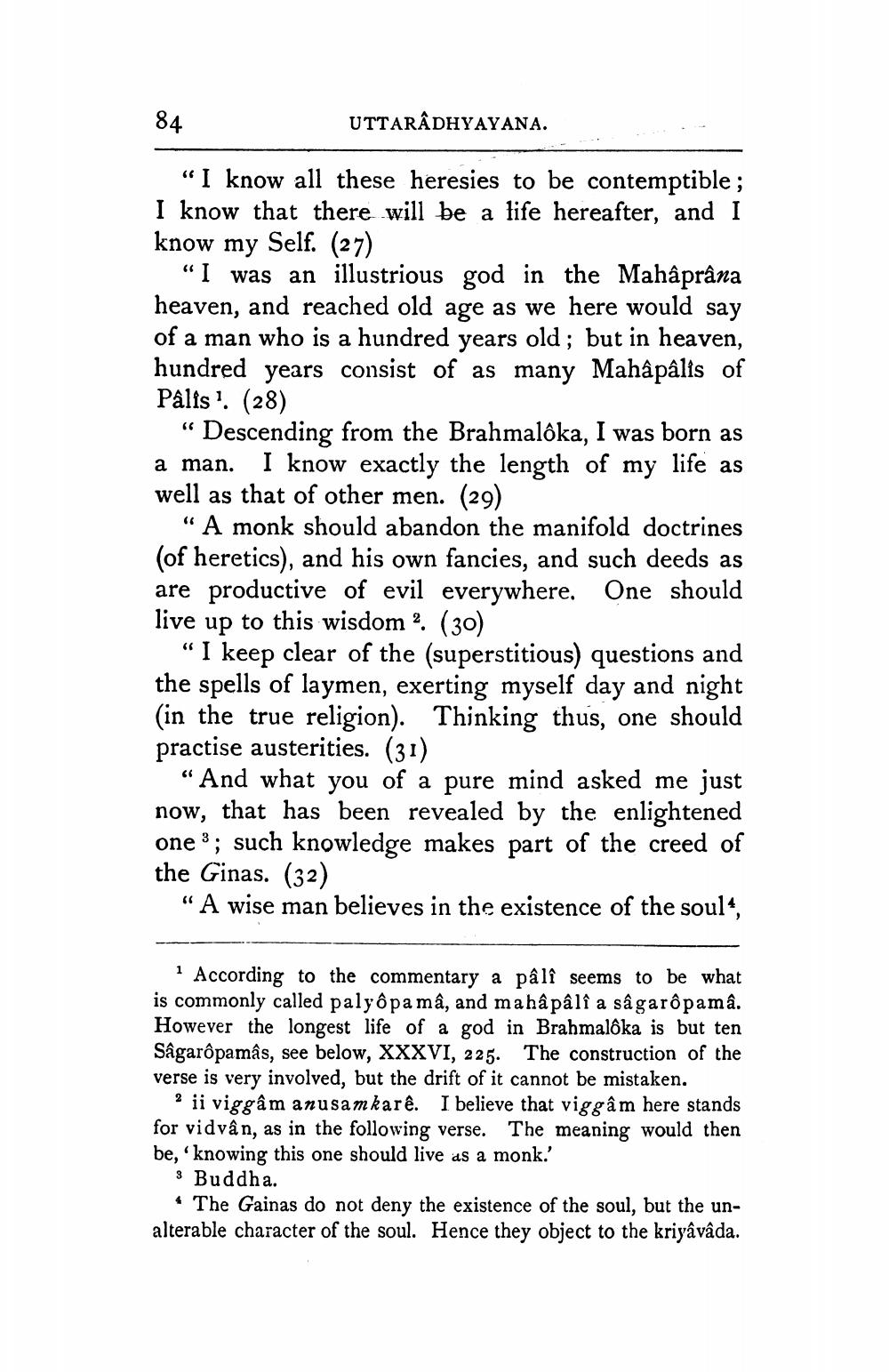________________
84
UTTARADHYAYANA.
"I know all these heresies to be contemptible; I know that there will be a life hereafter, and I know my Self. (27)
"I was an illustrious god in the Mahâprâna heaven, and reached old age as we here would say of a man who is a hundred years old; but in heaven, hundred years consist of as many Mahâpâlis of Palis ?. (28)
“Descending from the Brahmalôka, I was born as a man. I know exactly the length of my life as well as that of other men. (29)
"A monk should abandon the manifold doctrines (of heretics), and his own fancies, and such deeds as are productive of evil everywhere. One should live up to this wisdom 2. (30)
"I keep clear of the (superstitious) questions and the spells of laymen, exerting myself day and night (in the true religion). Thinking thus, one should practise austerities. (31)
"And what you of a pure mind asked me just now, that has been revealed by the enlightened one 3 ; such knowledge makes part of the creed of the Ginas. (32)
"A wise man believes in the existence of the soul“,
1 According to the commentary a pâlî seems to be what is commonly called palyôpa mâ, and ma hâpâli a sâgarÔpama. However the longest life of a god in Brahmaloka is but ten Sâgarôpamâs, see below, XXXVI, 225. The construction of the verse is very involved, but the drift of it cannot be mistaken.
i ii viggâm anusa mkarê. I believe that viggâm here stands for vidvân, as in the following verse. The meaning would then be, knowing this one should live as a monk.'
3 Buddha.
4 The Gainas do not deny the existence of the soul, but the unalterable character of the soul. Hence they object to the kriyâvâda.




